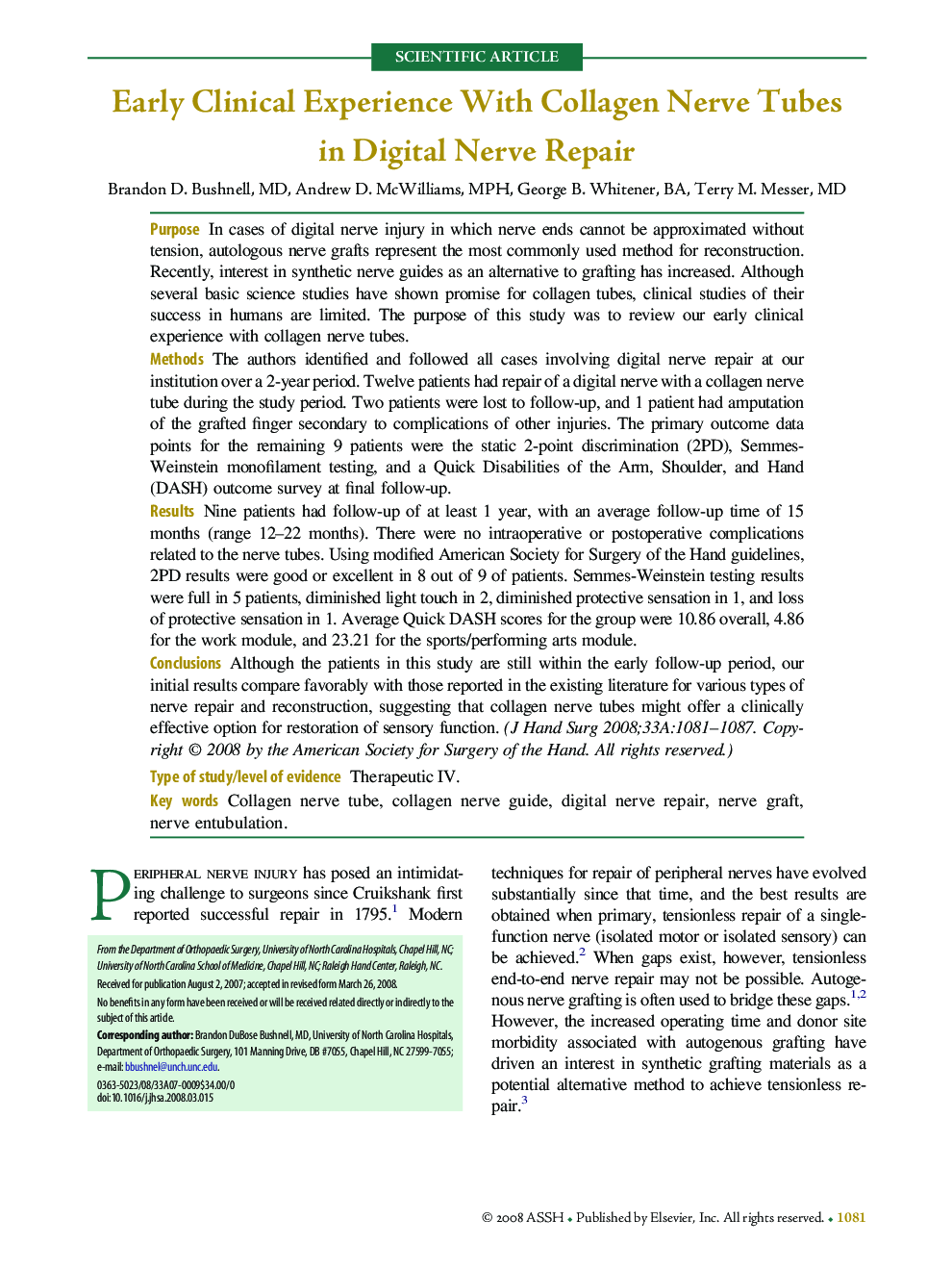| Article ID | Journal | Published Year | Pages | File Type |
|---|---|---|---|---|
| 4071370 | The Journal of Hand Surgery | 2008 | 7 Pages |
PurposeIn cases of digital nerve injury in which nerve ends cannot be approximated without tension, autologous nerve grafts represent the most commonly used method for reconstruction. Recently, interest in synthetic nerve guides as an alternative to grafting has increased. Although several basic science studies have shown promise for collagen tubes, clinical studies of their success in humans are limited. The purpose of this study was to review our early clinical experience with collagen nerve tubes.MethodsThe authors identified and followed all cases involving digital nerve repair at our institution over a 2-year period. Twelve patients had repair of a digital nerve with a collagen nerve tube during the study period. Two patients were lost to follow-up, and 1 patient had amputation of the grafted finger secondary to complications of other injuries. The primary outcome data points for the remaining 9 patients were the static 2-point discrimination (2PD), Semmes-Weinstein monofilament testing, and a Quick Disabilities of the Arm, Shoulder, and Hand (DASH) outcome survey at final follow-up.ResultsNine patients had follow-up of at least 1 year, with an average follow-up time of 15 months (range 12–22 months). There were no intraoperative or postoperative complications related to the nerve tubes. Using modified American Society for Surgery of the Hand guidelines, 2PD results were good or excellent in 8 out of 9 of patients. Semmes-Weinstein testing results were full in 5 patients, diminished light touch in 2, diminished protective sensation in 1, and loss of protective sensation in 1. Average Quick DASH scores for the group were 10.86 overall, 4.86 for the work module, and 23.21 for the sports/performing arts module.ConclusionsAlthough the patients in this study are still within the early follow-up period, our initial results compare favorably with those reported in the existing literature for various types of nerve repair and reconstruction, suggesting that collagen nerve tubes might offer a clinically effective option for restoration of sensory function.Type of study/level of evidenceTherapeutic IV.
